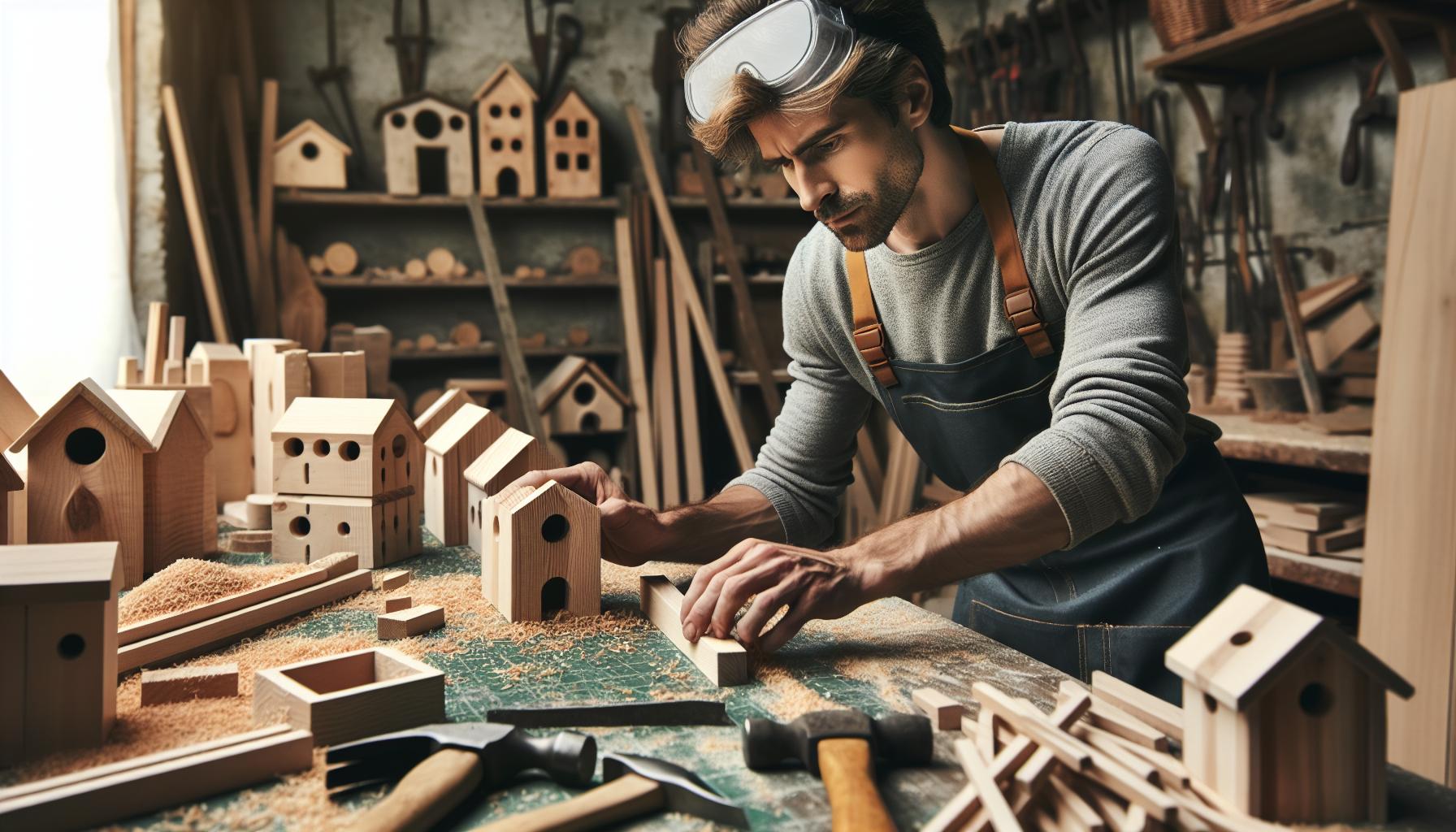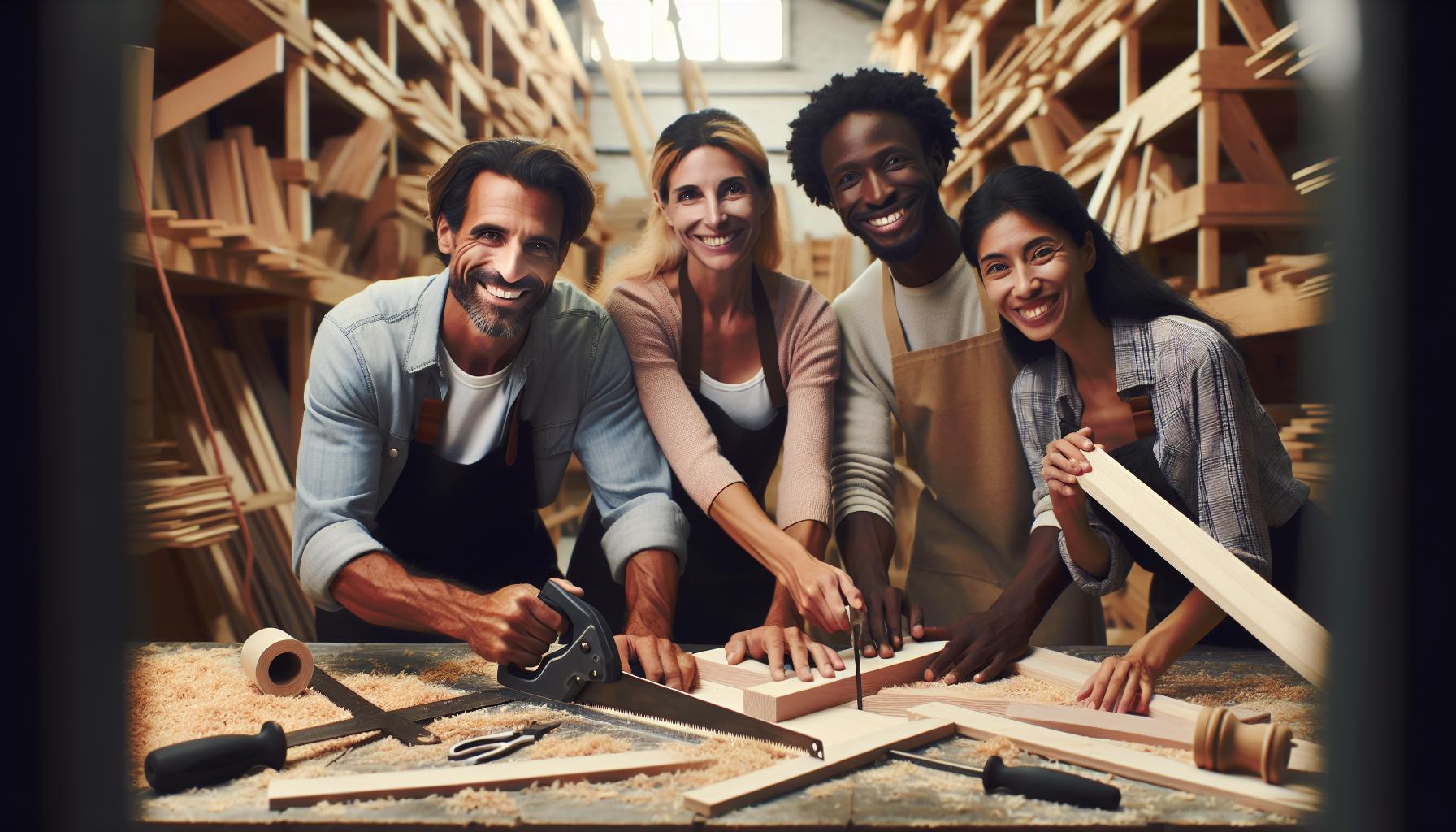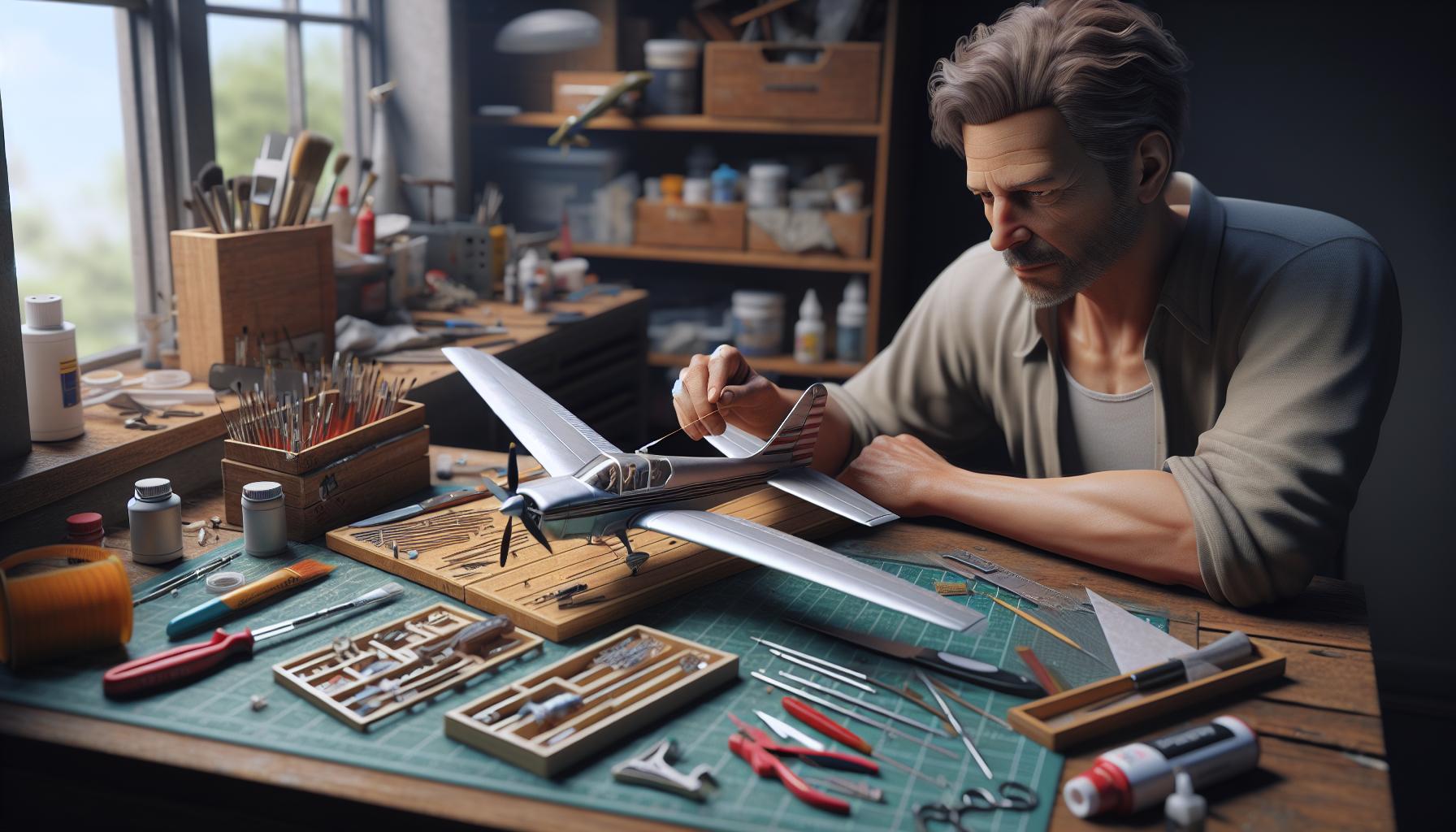In a world where scrolling through social media feels like a full-time job, finding a hobby can be a game changer. Building hobbies isn’t just about filling time; it’s about discovering passions that ignite joy and creativity. Whether it’s knitting like a pro or becoming the next Picasso, hobbies can transform mundane moments into exciting adventures.
Building Hobbies
Building hobbies involves creating activities that foster creativity, joy, and passion. These pursuits provide individuals with a way to express themselves beyond the digital landscape.
Definition and Overview
Building hobbies refer to activities centered on creation and exploration, allowing individuals to engage with materials or concepts. Crafting, woodworking, and creating art are examples that exemplify building hobbies. Each of these pursuits encourages the use of hands-on skills while stimulating the mind. As people immerse themselves in a building hobby, they often find a sense of accomplishment that enhances their overall well-being.
Importance of Building Hobbies
Engaging in building hobbies contributes significantly to personal development. Such activities foster critical thinking and problem-solving skills. Creativity blossoms as individuals experiment with different techniques and materials. Social connections often develop through shared interests in hobbies. Furthermore, alleviating stress becomes achievable when focusing on a satisfying task. By immersing in these hobbies, individuals discover personal satisfaction that enriches their daily lives and cultivates mindfulness.
Types of Building Hobbies

Building hobbies encompass various activities that foster creativity and hands-on skills. Engaging in these hobbies provides opportunities for individual expression and enjoyment.
Model Building
Model building involves constructing miniatures of vehicles, buildings, or figures. This hobby requires precision, patience, and attention to detail. Popular examples include scale models of cars, airplanes, and historical landmarks. Many enthusiasts enjoy customizing their models using paint and additional features. Collaborating with other hobbyists often enhances creativity and provides valuable feedback.
DIY Projects
DIY projects cover a wide range of activities, from home improvements to crafting. Individuals embrace these projects to create personalized items or enhance their living spaces. Common DIY ideas include furniture restoration, home decor, and upcycling everyday objects. The satisfaction of transforming materials into functional pieces can be fulfilling. Many people share their projects online, inspiring others and building a community of DIY enthusiasts.
Woodworking
Woodworking is a skill-driven hobby focused on crafting items from wood. Techniques range from basic projects like birdhouses to intricate furniture designs. This hobby promotes creativity and requires the use of various tools and techniques. Safety is paramount when working with sharp instruments and machinery. Many enthusiasts join local woodworking clubs to exchange tips and showcase their creations, fostering a supportive environment.
Benefits of Building Hobbies

Building hobbies offers numerous advantages that extend far beyond leisure. Individuals engaged in these activities experience enhanced personal growth, creative expression, and social enrichment.
Skill Development
Developing skills is a significant benefit of building hobbies. Crafting, woodworking, or other hands-on activities enhance critical thinking and problem-solving abilities. Individuals learn practical techniques, which lead to improved coordination and concentration. They might discover new talents while engaging in model building or DIY projects, pushing the boundaries of their creativity. Mastery of these skills often translates into increased confidence, inspiring individuals to take on more complex challenges. Engaging in hobbies pushes people toward continuous learning, fostering a mindset primed for exploration and innovation.
Stress Relief
Finding moments of release is crucial in today’s fast-paced environment. Engaging in hobbies provides a natural outlet for stress relief. Activities like painting or woodworking offer people the opportunity to detach from daily pressures while focusing on creativity. Immersion in these enjoyable pursuits fosters a calming effect that reduces anxiety and promotes mindfulness. Through physical engagement, individuals often experience a shift in perspective, leading to increased emotional well-being. These fulfilling experiences help maintain a healthier balance in life, making it easier to manage stress effectively.
Community Engagement
Community connections form another important aspect of building hobbies. Individuals often find a sense of belonging through shared interests with others. Participating in local clubs or online groups related to crafting or DIY projects fosters camaraderie. Engaging with fellow enthusiasts allows individuals to exchange ideas, tips, and inspiration. Collaborating on projects strengthens social bonds while introducing new perspectives. This collective creativity enriches both personal experiences and the community as a whole, creating a supportive environment that celebrates individual expression.
Getting Started with Building Hobbies

Getting started with building hobbies involves finding the right fit and gathering essential materials. Engaging in activities that spark interest provides a fulfilling experience.
Choosing the Right Hobby
Selecting a hobby requires personal interest and exploration. Consider preferences, such as creativity, craftsmanship, and collaboration with others. Model building appeals to those who enjoy meticulous work, while DIY projects attract individuals seeking personal expression. Woodworking suits those who appreciate hands-on crafting. Reflecting on personal goals can help in narrowing down options. Explore different activities through local workshops or online resources for guidance and inspiration.
Essential Tools and Materials
Gathering essential tools and materials is crucial for diving into building hobbies. Depending on chosen activities, specific supplies may vary. For model building, precision tools like hobby knives and glue are necessary. DIY projects often require paint, brushes, and tools like screwdrivers and hammers. In woodworking, hand saws, chisels, and sandpaper support crafting. Investing in quality tools enhances the experience and outcome of the projects. Researching the specific needs of each hobby provides a clear pathway to successful engagement.
Building hobbies offers a transformative experience that enriches lives in countless ways. By engaging in creative pursuits individuals not only discover their passions but also cultivate essential skills that enhance personal growth. These activities provide a much-needed break from the digital world allowing for genuine self-expression and connection with others.
Whether it’s crafting a model or restoring furniture each hobby presents unique opportunities for exploration and learning. As individuals invest time and effort into their chosen activities they foster a sense of accomplishment and joy that permeates their daily lives. Embracing hobbies is a powerful step towards a more fulfilling and mindful existence.

